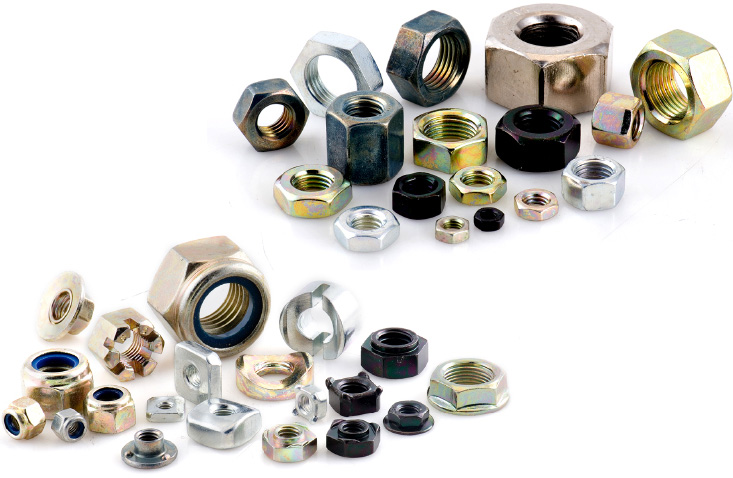5 Industrial Nuts for Your Fastening Needs
In industrial applications, selecting the right fastening component is crucial for ensuring durability, security, and efficiency. Among the many options available, industrial nuts play a key role in providing a secure connection. Whether you are working on a manufacturing line, construction project, or mechanical assembly, understanding which nut to choose can make all the difference.
This guide explores the top 5 industrial nuts, helping you make the best choice for your needs.

Choosing the Right Nut for Every Application
Not all industrial nuts are created equal. Different applications require different types of nuts to ensure a reliable fastening. Whether you're working with heavy machinery, automotive parts, or electronics, the material, size, and design of the nut must match the job at hand.
For example, hex nuts are widely used for general applications, while lock nuts are perfect for vibration-prone environments. Understanding the specific demands of your project is the first step in selecting the right nut.
Durability and Strength: Why Quality Matters
When it comes to industrial nuts, quality is paramount. The durability and strength of the nut directly affect the integrity of your assembly. Low-quality nuts can lead to fastener failure, potentially causing downtime, safety hazards, and expensive repairs.
High-quality industrial nuts, made from robust materials like stainless steel or high-carbon steel, offer superior strength and resistance to wear and tear. Investing in quality nuts ensures that your fastening solutions are not only reliable but also cost-effective in the long run.
Top 5 Types of Industrial Nuts You Should Know
Here are the top 5 types of industrial nuts you should consider for various applications:
Hex Nuts: Commonly used in mechanical and structural applications, these six-sided nuts provide a secure and versatile fastening solution.
Slotted Nuts: Designed with slots on the top, slotted nuts are used in conjunction with a cotter pin to lock the nut in place. Ideal for applications where vibration resistance is critical.
Flange Nuts: Featuring a built-in flange that acts as a washer, these nuts offer additional load distribution and are ideal for soft or thin materials.
Nylon Nuts: Lightweight and non-corrosive, nylon nuts are often used in applications where weight and corrosion are concerns.
Square Nuts: With their four-sided shape, square nuts provide better resistance to rotation when used in conjunction with square bolts, making them perfect for heavy-duty applications where extra stability is needed.
Each of these nuts serves a unique purpose, making it important to select the right one for your specific needs.
How to Match the Right Nut with Your Fastener System
To ensure a secure and stable fastening, it is essential to match the right nut with the appropriate fastener system. This includes considering the type of bolt or screw, the material compatibility, and the required load-bearing capacity.
For instance, when pairing a nut with a bolt, you should ensure that the nut's internal thread matches the bolt's external thread. Additionally, if the environment involves high temperatures or corrosive substances, choosing nuts with special coatings or made from corrosion-resistant materials is crucial.
Materials Matter: Choosing the Right Nut for the Job
The material of the nut plays a critical role in its performance. Depending on the environment and the load requirements, you may need a specific type of material.
Stainless Steel: Offers excellent corrosion resistance and is ideal for marine or outdoor applications.
Brass: Known for its conductivity and corrosion resistance, it is commonly used in electrical applications.
Carbon Steel: Offers high strength and durability but may require coatings for corrosion resistance.
Nylon: Lightweight and non-corrosive, nylon nuts are often used in applications where weight and corrosion are concerns.
Choosing the right material ensures that your industrial nuts perform optimally in your specific environment.
Conclusion
Selecting the right industrial nut is more than just a matter of size—it's about ensuring durability, strength, and compatibility with your fastener system. Whether you're working with a mechanical assembly, a construction project, or a delicate electronic device, knowing the top 5 types of industrial nuts and understanding their unique features will help you make informed decisions for your fastening needs. Always prioritize quality and material compatibility to guarantee the longevity and performance of your projects. Feel free to contact us!

 En
En 



